Search Results
Search
Filter results
Advanced Filters
Your search returned 23 Solutions
-
A scalable assistive technology initiative
The F123 Initiative leverages investments made by thousands of individuals, companies, and governments in free and open-source technologies to make internships, and consequently employment opportunities, that are available in small companies accessible to persons with disabilities.
UNICEF New York, A scalable assistive technology initiative, Brazil -
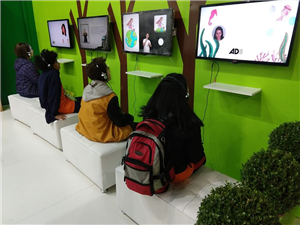
Audio-visual books in multiple accessible formats
"Livros em múltiplos formatos acessíveis" is an audio-visual software that converts books into a range of accessible formats, including Brazilian sign language, in a single version. Complementing this, the NGO Mais Diferenças from Brazil offers training and organizes inclusive readings for people with and without disabilities.
Mais Diferencas - Inclusive Education and Culture, Books in multiple accessible formats, Brazil -
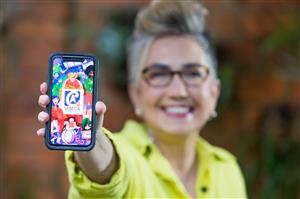
Accessible platform screening events for 12 accessibility features
VEM CA is a free and accessible phone app, developed by the Brazilian NGO Escola de Gente, that informs users where and when accessible events are taking place. The app covers hundreds of events every year and allows users to search by 12 accessible features and in 24 event categories.
Escola de Gente - Communication in inclusion, VEM CA - Accessible Culture App, Brazil -
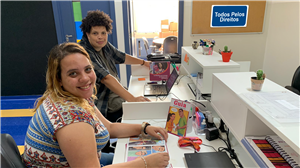
Self-advocacy group of persons with intellectual disabilities
Im Jahr 2011 initiierte das Instituto Jô Clemente in São Paulo, Brasilien, das Projekt "Selbstverteidigung", um Menschen mit geistigen Behinderungen zu befähigen, sich selbst zu verteidigen. Seit 2015 hat die Gruppe von Selbstvertretern einen Sitz im Stadtrat von São Paulo, im Jahr 2022 hatte sie 30 Mitglieder:innen.
Jo Clemente Institute, Self-Defence Project, Brazil -
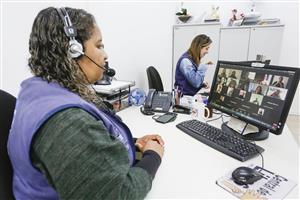
A city organizing weekly conversations in public spaces with citizens in sign language
To support the dissemination of the Brazilian sign language Libras, the city of Curitiba created Conversation in Libras launched the Conversation in Libras programme, offering weekly face-to-face meetings in its public spaces that improve the interaction and communication in Libras, the Brazilian sign language.
Curitiba City Hall, Conversation in Libras, Brazil -
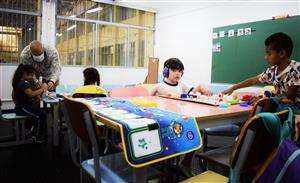
Comprehensive after-school programme supporting children with intellectual disabilities to attend mainstream classes
Instituto Jô Clemente's SEAC Project, Brazil: Enhances regular education access for children with disabilities. Assisted over 320 children and teenagers with disabilities in 2022, providing resources and training for teachers and families.
Specialized Educational Assistance Centre (SEAC), Brazil -
One children’s book in nine accessible formats
The project promotes the concept of inclusion through book workshops for children, teachers, and educators allowing children aged 7 to 11 years to experience inclusion in a sensory and playful way. The main feature is the children's book "Sonhos do Dia" (Dreams of the Day), which is presented in nine diverse and accessible formats.
WVA Editoria - Accessible Publishing, Brazil -
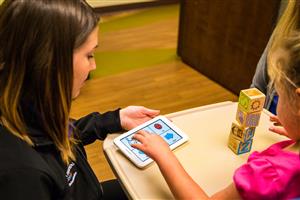
Alternative communication platform for people with learning difficulties
The Livox app enables users with speaking or learning difficulties to communicate using virtual cards with pictures or illustrated short phrases. The app can be operated noth by blinking and by speech. The app is self-learning and also features a content creator to add communication cards with videos, pictures and music.
Livox, Livox, Brazil -
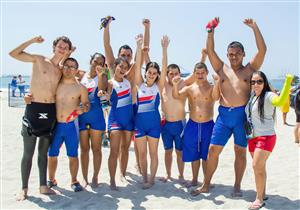
Fostering inclusive education in Latin America through youth leadership and sports
Escuelas Unificadas by Special Olympics Latin America: Promotes inclusive environments through sports and leadership activities for children with and without intellectual disabilities. Implemented in seven countries, reaching over 16,000 participants by 2023.
Escuelas Unificadas (Unified Schools), Brazil -
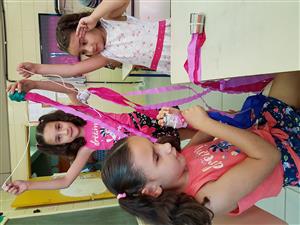
Universal design-based practices for public early childhood education
The project promotes the use of accessible and inclusive teaching methods in public pre-school education based on the principles of Universal Design. Educators and families experience its theory and methods in the form of trainings and workshops, teachers also receive practical support in the classroom.
Mais Diferencas - Inclusive Education and Culture, Projeto Brincar, Brazil